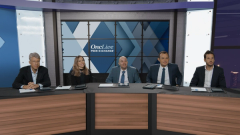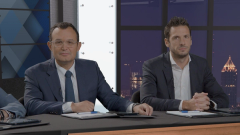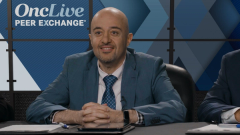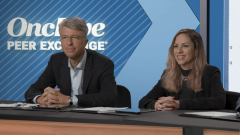
Summary of Unmet Needs and Future Directions in MDS
Experts close by summarizing key advances and remaining unmet needs across all MDS risk groups, and share their hopes for the future.
Episodes in this series

Transcript:
Rami Komrokji, MD: Thank you all for this rich and informative discussion. I’ve enjoyed it. We could speak hours more talking about MDS [myelodysplastic syndrome]. I’ll ask each of you for a closing thought and take-home message. Let’s start with Thomas.
Thomas Cluzeau, MD, PhD: We don’t have a lot of drugs, but there are a lot of drugs in development with a lot of promising risers in low-risk and in high-risk MDS. We hope to have a new standard very soon to improve the outcome of our patients.
Rami Komrokji, MD: Thank you. Dr Garcia-Manero?
Guillermo Garcia-Manero, MD: I agree. At the first ASH [American Society of Hematology Annual Meeting] 20 years ago, if we had this discussion, it would be very sad. We have tons of molecular data and new prognostic classifications. But we’re in a transition period. We need to see. We mentioned 4 phase 3 trials: COMMANDS, IMerge, VERONA, and ENHANCE. Hopefully, some of them will be positive. We’re starting to improve what’s happening, but we want patients to participate in a clinical trial. This is a fundamental tool. As we learned from Sanam, this disease requires expert hematology and molecular pathology to do the best for your patient.
Rami Komrokji, MD: Thank you. Dr Loghavi?
Sanam Loghavi, MD: An area that we didn’t talk about but that should be a focus for MDS is improving the way we define response criteria, especially because now we have therapies that can alter the molecular landscape of disease. That’s something we should be thinking about and actively trying for, as we design these clinical trials and try to improve the lives of these patients.
Rami Komrokji, MD: Thank you. Uwe?
Uwe Platzbecker, MD: I’ve very much enjoyed being with you. You’ve summarized everything quite nicely. What we need in my country [Germany] is a little more attraction of the patients for clinical trials and also referrals. We need to raise awareness at community-based hospitals and office-based hematologists to refer patients into clinical trials. Without these studies, we won’t make progress.
Rami Komrokji, MD: We’ve made progress in making individuals aware that MDS is a serious disease. It’s a myelodysplastic disease. We’ve made progress in our diagnostic capabilities and prognostication, and hopefully we’ll translate all those new treatments into improving the standard of care. We have 2 drugs approved, but we have a lot of work to do.
Thank you for joining me. Thank you to our audience for joining us. I hope you found this OncLive® Peer Exchange® to be useful and valuable to the treatment of your patients with MDS. Thank you.
Transcript edited for clarity.










































